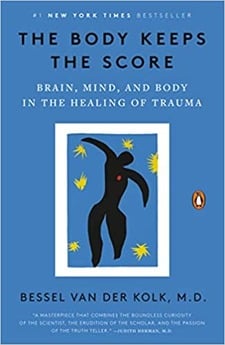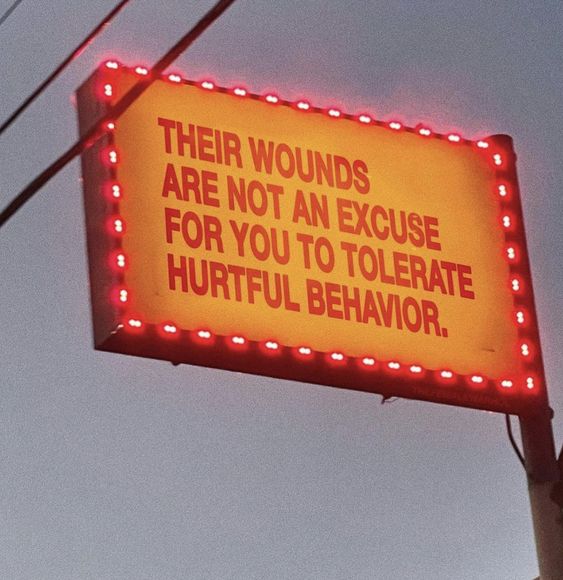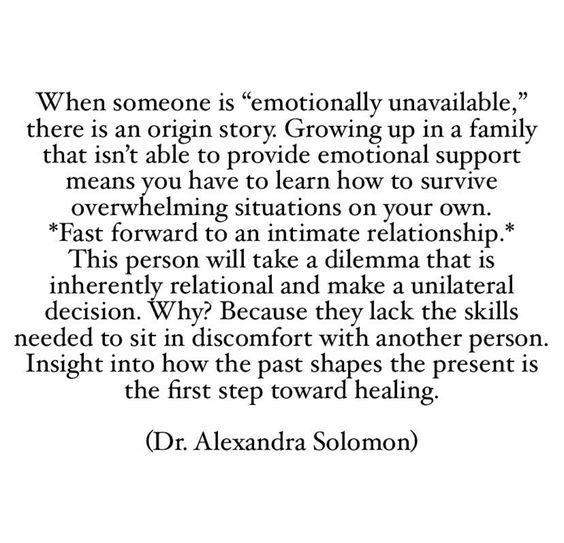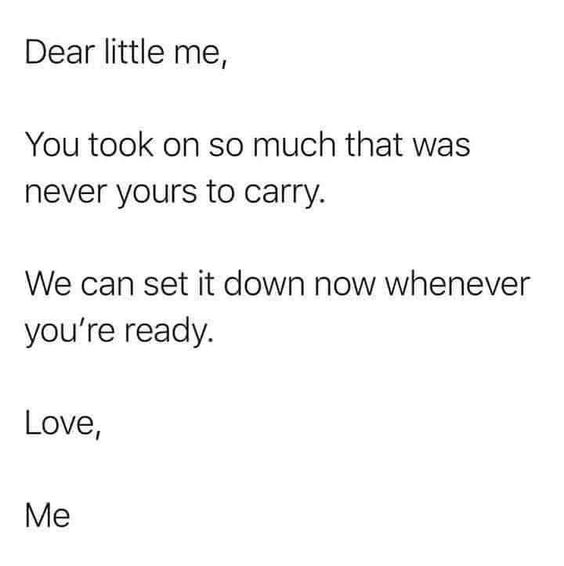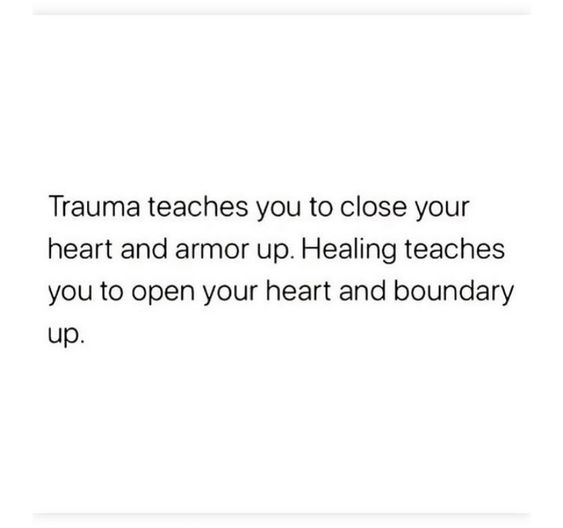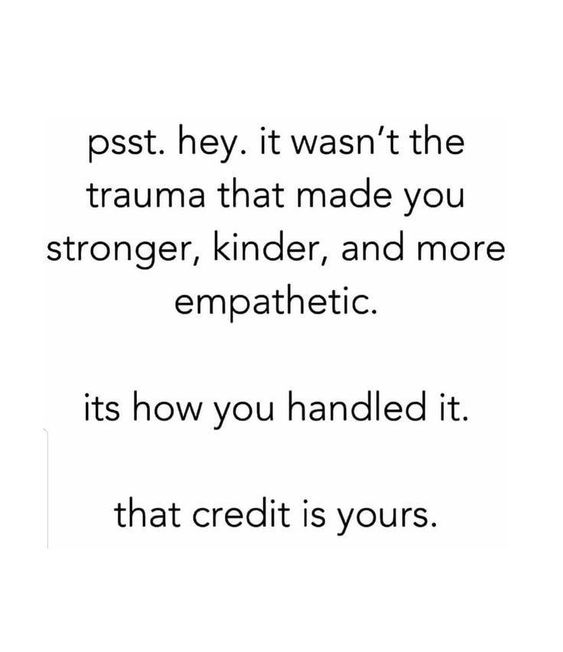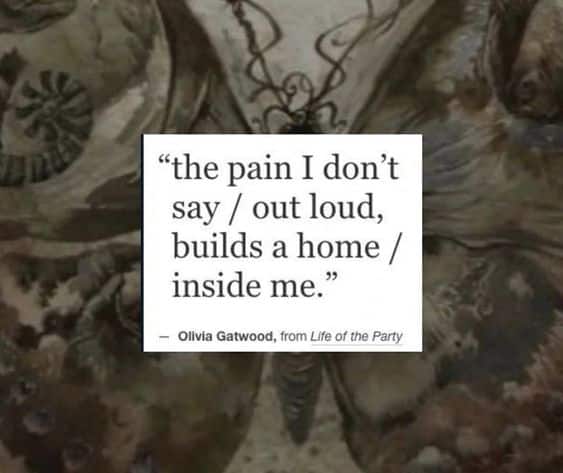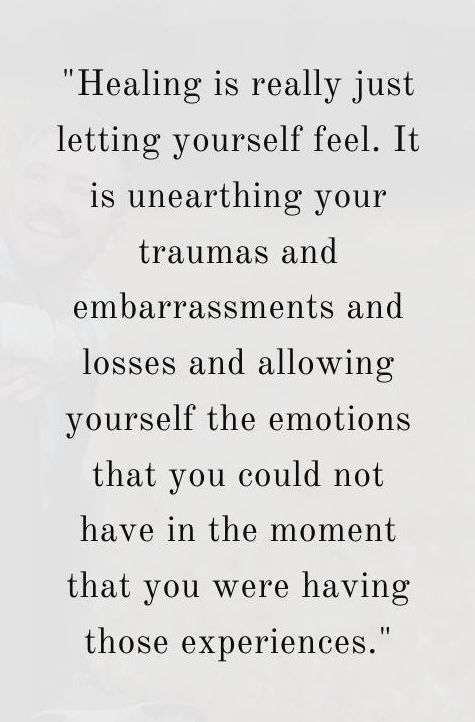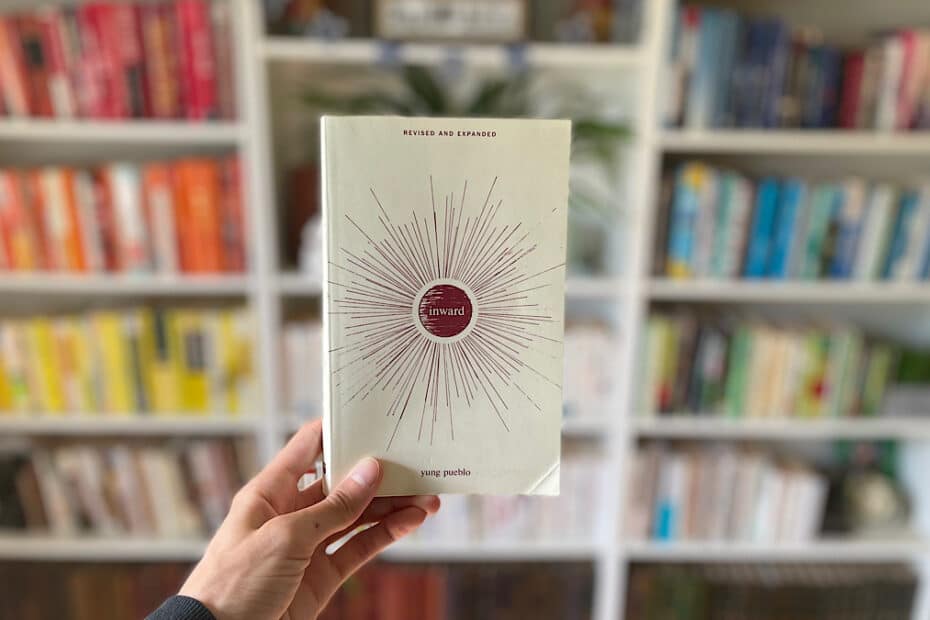“Trauma victims cannot recover until they become familiar with and befriend the sensations in their bodies. Being frightened means that you live in a body that is always on guard. Angry people live in angry bodies. The bodies of child-abuse victims are tense and defensive until they find a way to relax and feel safe. In order to change people need to become aware of their sensations and the way that their bodies interact with the world around them. Physical self-awareness is the first step in releasing the tyranny of the past.”
Bessel van der Kolk, The Body Keeps The Score (Page 103) | ★ Featured on this book list.
“Social support is not the same as merely being in the presence of others. The critical issue is reciprocity: being truly heard and seen by the people around us, feeling that we are held in someone else’s mind and heart. For our physiology to calm down, heal, and grow we need a visceral feeling of safety. No doctor can write a prescription for friendship and love: These are complex and hard-earned capacities. You don’t need a history of trauma to feel self-conscious and even panicked at a party with strangers—but trauma can turn the whole world into a gathering of aliens.”
Bessel van der Kolk, The Body Keeps The Score (Page 81) | ★ Featured on this book list.
“Being able to feel safe with other people is probably the single most important aspect of mental health; safe connections are fundamental to meaningful and satisfying lives. Numerous studies of disaster response around the globe have shown that social support is the most powerful protection against becoming overwhelmed by stress and trauma.”
Bessel van der Kolk, The Body Keeps The Score (Page 81) | ★ Featured on this book list.
“In many places drugs have displaced therapy and enabled patients to suppress their problems without addressing the underlying issues. Antidepressants can make all the difference in the world in helping with day-to-day functioning, and if it comes to a choice between taking a sleeping pill and drinking yourself into a stupor every night to get a few hours of sleep, there is no question which is preferable. For people who are exhausted from trying to make it on their own through yoga classes, workout routines, or simply toughing it out, medications often can bring life-saving relief. The SSRIs can be very helpful in making traumatized people less enslaved by their emotions, but they should only be considered adjuncts in their overall treatment.”
Bessel van der Kolk, The Body Keeps The Score (Page 36) | ★ Featured on this book list.
“Trauma results in a fundamental reorganization of the way mind and brain manage perceptions. It changes not only how we think and what we think about, but also our very capacity to think. We have discovered that helping victims of trauma find the words to describe what has happened to them is profoundly meaningful, but usually it is not enough. The act of telling the story doesn’t necessarily alter the automatic physical and hormonal responses of bodies that remain hypervigilant, prepared to be assaulted or violated at any time. For real change to take place, the body needs to learn that the danger has passed and to live in the reality of the present.”
Bessel van der Kolk, The Body Keeps The Score (Page 21) | ★ Featured on this book list.
“Trauma is not just an event that took place sometime in the past; it is also the imprint left by that experience on mind, brain, and body. This imprint has ongoing consequences for how the human organism manages to survive in the present.”
Bessel van der Kolk, The Body Keeps The Score (Page 21) | ★ Featured on this book list.
The Body Keeps The Score [Book]
Book Overview: In The Body Keeps the Score, Dr. Van Der Kolk uses recent scientific advances to show how trauma literally reshapes both body and brain, compromising sufferers’ capacities for pleasure, engagement, self-control, and trust. He explores innovative treatments—from neurofeedback and meditation to sports, drama, and yoga—that offer new paths to recovery by activating the brain’s natural neuroplasticity.
Post(s) Inspired by this Book:
40 Bessel van der Kolk Quotes on Trauma and Healing from The Body Keeps The Score
“It’s sharing our own personal pain that allows us to move beyond it. Because it’s one thing to just sit and intellectualize our problems to ourselves. But once we share and mold that meaning out in the world around us, our pain becomes something outside of us. And because it’s now outside of us, we are finally able to live without it.”
Mark Manson, Blog
“All those inspirational quotes with cheesy sunsets about enduring adversity and “what doesn’t kill you makes you stronger,” they all kind of mislead you into thinking that just enduring some form of hardship is enough to steel yourself against future hardship. That’s not entirely true. It’s what comes after the trauma that really matters. It’s not the survival of trauma that makes you stronger, it’s the work you put in as a result of the trauma that makes you stronger.”
Mark Manson, Blog
“Everyone has one. It’s the part of ourselves we won’t look at, acknowledge or risk disturbing. It’s the story or trauma or situation that must be avoided at all costs. People will choose careers, families and opportunities simply to avoid confronting the little tiny voice that is hiding inside. And marketers with low standards will brazenly manipulate us to extract money spent to protect the sore spot. It’s almost impossible to make it go away. But if we’re brave enough to acknowledge it exists, it’s possible to help it take up far less room.”
Seth Godin, Blog
“Fear is not going to protect you. Action is. Worrying is not going to protect you. Preparing is. Overthinking is not going to protect you. Understanding is. When we hold onto fear and pain after something traumatic has passed, we do it as a sort of safety net. We falsely believe that if we constantly remind ourselves of all the terrible things that we didn’t see coming, we can avoid them. Not only does this not work, but it also makes you less efficient at responding to them if they do.”
Brianna Wiest, The Mountain Is You (Page 168)
“Defining yourself by your suffering is an effective way to keep suffering forever (ex. incels, trauma).”
Ideopunk, LessWrong
28 Poetic Quotes from Inward by Yung Pueblo on Healing, Pain, and Love
Excerpt: These quotes from Inward by Yung Pueblo are painful and healing all at once. They’re deep, emotional, and worth every ounce of your attention.
Read More »28 Poetic Quotes from Inward by Yung Pueblo on Healing, Pain, and Love
